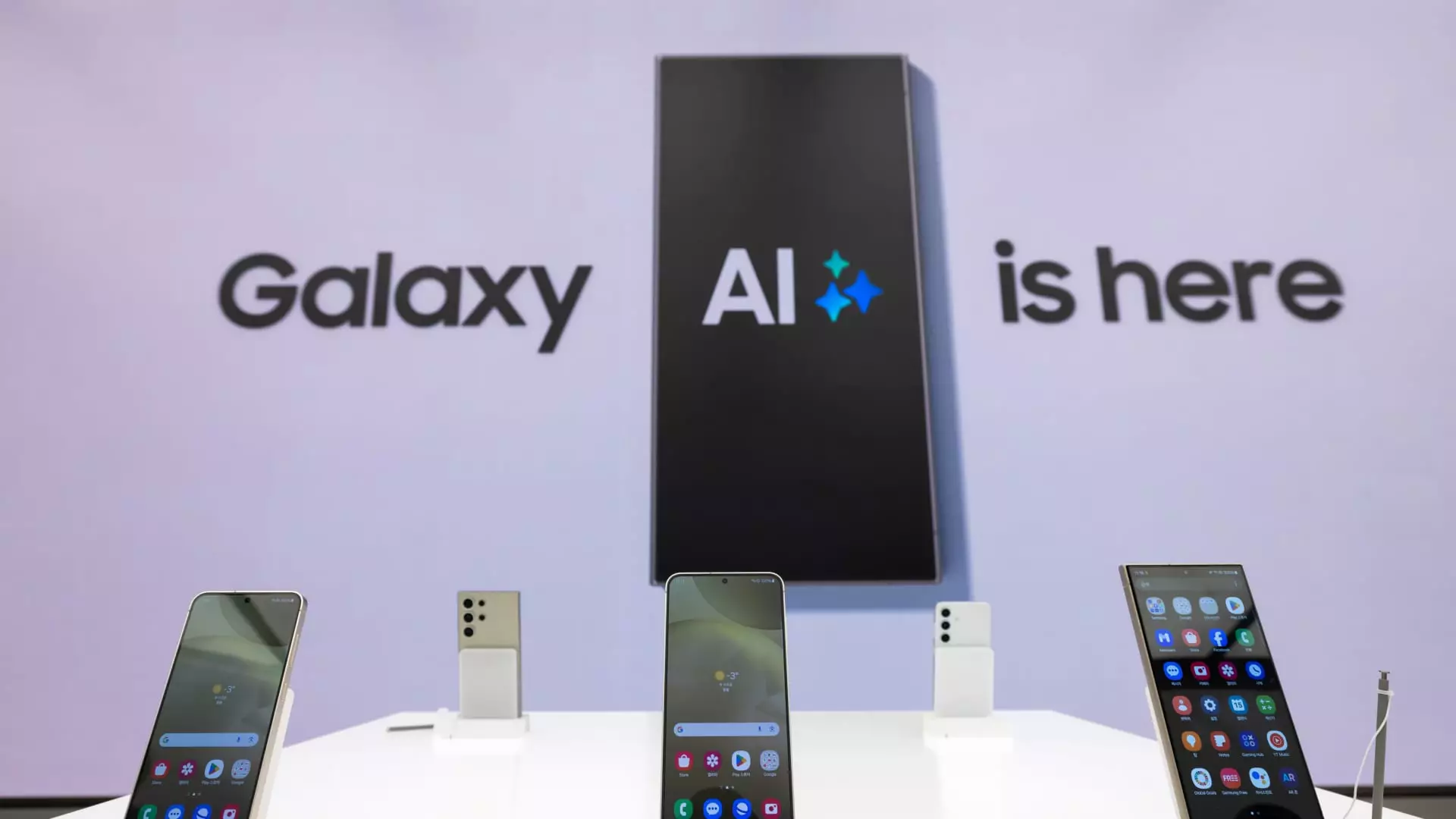Artificial intelligence (AI) in smartphones has been a hot topic in the tech industry, with companies looking to capitalize on the AI hype to boost sales. The recent release of OpenAI’s ChatGPT has sparked interest in generative AI, leading to the integration of AI into various industries and consumer products, including smartphones. As manufacturers gear up to showcase their AI capabilities at the Mobile World Congress (MWC) in Barcelona, the question arises – is the AI revolution in smartphones merely a buzzword, or is it a game-changer in the making?
While AI technology in smartphones is not entirely new, the introduction of large language models and generative AI represents a significant advancement in the field. Traditionally, AI applications on smartphones were cloud-based, requiring partial processing in data centers before being downloaded onto the device. However, with advancements in chip technology and the development of large language models, on-device AI has become a reality. This shift to on-device AI not only improves processing speed and security but also unlocks new applications that were previously unimaginable.
On-device AI has the potential to revolutionize the smartphone user experience by enabling anticipatory computing, where the device learns user behavior and predicts actions. This level of personalization and intuitive interaction could pave the way for new and innovative applications that cater to the individual needs of users. However, despite the potential benefits of on-device AI, the reality is that the technology is still in its early stages, and the true game-changing experiences are yet to come.
One of the key challenges facing the adoption of on-device AI in smartphones is the lack of compelling use cases that resonate with consumers. While manufacturers are eager to tout their AI capabilities, the focus should be on delivering meaningful experiences that add value to users’ daily lives. The risk of “AI fatigue” looms large, as consumers may grow weary of the hype surrounding AI without seeing tangible benefits. It may take several years for developers to identify the killer use case that truly showcases the potential of AI on smartphones.
Despite the current excitement surrounding AI in smartphones, the realization of its full potential may be a long way off. Industry experts predict that 2024 will be a pivotal year for on-device AI, marking the beginning of groundbreaking experiences for users. As smartphone manufacturers continue to innovate and integrate AI into their devices, the focus should shift towards delivering meaningful and user-centric applications that truly enhance the smartphone experience.
The future of AI in smartphones holds immense promise, but it also presents significant challenges. While the technology is advancing rapidly, the true impact of AI on devices is yet to be fully realized. As smartphone manufacturers work towards creating personalized, intuitive, and anticipatory experiences for users, the key lies in developing compelling use cases that resonate with consumers. The journey towards achieving game-changing AI experiences in smartphones may be long, but the potential rewards are well worth the wait.


Leave a Reply